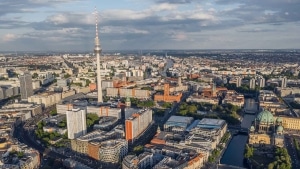Living in Portugal as an Expat: The Ultimate Guide
- Living in Portugal as an Expat: The Ultimate Guide
- Why Portugal Attracts Expats
- Top 5 Cities for Expats in Portugal
- Portugal’s Healthcare System for Expats
- Understanding Tax System in Portugal
- Visa Options for Expats Moving to Portugal
- Cost of Living in Portugal for Expats
- Working in Portugal as an Expat
- Learning Portuguese: Key to Integration
- Pros and Cons of Living in Portugal as an Expat
- Essential Checklist for Moving to Portugal
- Cultural Adjustment for Expats in Portugal: How to Settle Smoothly
- Bringing Pets to Portugal
- Public Transportation in Portugal: What Expats Need to Know
- How to Open a Bank Account in Portugal as an Expat
- How to Get Permanent Residency and Citizenship in Portugal
- Is Living in Portugal Right for You?
Portugal remains one of Europe’s most popular destinations for expats worldwide. With its sunny climate, affordable lifestyle, political stability, and welcoming culture, living in Portugal as an expat offers comfort, opportunity, and a relaxed pace of life. Whether relocating for retirement, remote work, entrepreneurship, or education, Portugal continues to open its doors wider than ever before.
This complete guide covers everything you need to know: from the best cities to live in, healthcare and tax systems, visa options, cost of living, and practical relocation tips.
Why Portugal Attracts Expats
High Quality of Life at a Lower Cost
Portugal offers a European standard of living with far lower costs compared to France, Germany, or Switzerland. Expats enjoy modern healthcare, excellent public transport, world-class food, and safe, friendly communities without the financial pressures common elsewhere.
Safe, Peaceful, and Politically Stable
Portugal is consistently ranked among the world’s safest countries. Violent crime is extremely rare, and political stability makes it a secure place for families, retirees, and entrepreneurs.
Excellent Weather Year-Round
With over 300 days of sunshine annually in many regions, Portugal boasts mild winters and warm summers, perfect for an active, outdoor lifestyle.
Top 5 Cities for Expats in Portugal
Lisbon: The Capital of Opportunities
Portugal’s capital is dynamic, multicultural, and filled with opportunity. It’s a major hub for startups, remote workers, and international companies.
Pros:
- Abundant job opportunities in tech, tourism, and business
- Rich cultural life and nightlife
- Excellent public transportation
Cons:
- Higher cost of living compared to smaller cities
- Heavy tourist traffic during peak seasons
Ideal for: Entrepreneurs, remote workers, young professionals.
Porto: Tradition Meets Innovation
Porto offers historical charm and a booming modern economy, especially in tech and education.
Pros:
- Lower housing costs than Lisbon
- UNESCO-listed heritage sites
- Growing startup and tech scene
Cons:
- Rainier and cooler weather compared to the south
- Smaller international community
Ideal for: Tech professionals, families, students.
Faro: Gateway to the Algarve
The relaxed pace of Faro and its stunning beaches make it a top choice for retirees and digital nomads.
Pros:
- Affordable living compared to Lisbon
- Beautiful beaches and year-round sun
- Friendly, slower-paced environment
Cons:
- Limited job market outside tourism and services
- Quieter city life
Ideal for: Retirees, hospitality workers, digital nomads.
Cascais: Luxury Living by the Sea
Just outside Lisbon, Cascais offers an elegant lifestyle with a coastal charm.
Pros:
- Top international schools and healthcare facilities
- Beautiful coastal scenery
- Proximity to Lisbon for work and amenities
Cons:
- High real estate prices
- Quiet outside the summer season
Ideal for: Executives, wealthy retirees, families.
Braga: Authentic Portugal at Lower Costs
Braga, one of Portugal’s oldest cities, offers tradition, affordability, and a growing economy.
Pros:
- Very affordable housing
- Rapid economic development
- Traditional Portuguese lifestyle
Cons:
- Fewer English speakers
- Smaller expat community compared to Lisbon or Porto
Ideal for: Families, students, expats seeking authentic Portuguese life.
Portugal’s Healthcare System for Expats
Public Healthcare (SNS)
Portugal’s public healthcare system (SNS – Serviço Nacional de Saúde) offers affordable, high-quality care to all residents. Expats with a residency permit can access services by paying minimal fees.
Key Facts:
- Emergency care is free
- Routine appointments cost between €5–€20
- Quality comparable to other European nations, but wait times can be long
Private Healthcare
Many expats opt for private insurance to access faster services at private hospitals, with English-speaking doctors commonly available.
Costs:
- Basic private insurance: €50–€100 per month
Top Providers:
- Médis, Multicare, Allianz, Cigna
Understanding Tax System in Portugal
Income Tax Rates
Portugal’s income tax system is progressive:
- 14.5% for income up to €7,703
- 23% for income up to €11,623
- 28.5% for income up to €16,472
- 35% for income up to €21,321
- 37% for income up to €27,146
- 45% for income up to €80,000
- 48% for income above €80,000
Non-Habitual Resident (NHR) Program
Portugal’s NHR program offers favorable tax conditions to new residents:
- 10% tax on foreign pensions
- 20% flat rate on income from high-value activities
- Some foreign income exempt from Portuguese tax
Validity:
NHR status is granted for 10 years, making Portugal extremely attractive for retirees and remote workers.
Property and Capital Gains Taxes
- Property tax (IMI): 0.3% to 0.8% annually based on property value
- Capital gains: Taxable, but exemptions apply if reinvesting in a new primary residence
Visa Options for Expats Moving to Portugal
D7 Visa: For Passive Income Earners
Designed for retirees and individuals with sufficient passive income. Proof of stable income (around €820 monthly minimum) is required.
D8 Visa: Digital Nomad Visa
For remote workers and freelancers earning over €3,280 per month from non-Portuguese sources. Portugal has embraced remote working culture, making it easier than ever.
Golden Visa: Investment-Based Residency
Grants residency rights through investments in real estate, business, or cultural projects, starting from €250,000.
Cost of Living in Portugal for Expats
Average Monthly Costs (Lisbon):
- Rent (one-bedroom): €1000–€1,500
- Utilities: €100–€150
- Groceries: €250–€350
- Public transportation: €40 (monthly pass)
- Private healthcare: €50–€100
In Porto or Braga:
Living costs are 20–30% lower compared to Lisbon or Cascais.
Working in Portugal as an Expat
Portugal’s job market is growing in fields such as IT, tourism, renewable energy, real estate, and education. English-speaking jobs are primarily found in Lisbon, Porto, and tech hubs in the Algarve.
Popular jobs:
- IT and startups
- Tourism and hospitality
- English teaching (TEFL certified)
- Real estate and property management
Learning Portuguese: Key to Integration
While English is widely spoken in Lisbon, Porto, and the Algarve, learning Portuguese is essential for full integration and better career opportunities.
Best ways to learn:
- Language schools (CIAL, Portuguese Connection)
- Free public language courses
- Language exchange meetups
Even basic skills in Portuguese greatly enrich your daily experience.
Pros and Cons of Living in Portugal as an Expat
Pros:
- High quality of life at lower costs
- Safe, politically stable, and welcoming
- Sunny, mild climate
- Clear and favorable residency pathways
Cons:
- Bureaucratic processes can be slow
- Salaries lower than in Northern Europe
- Housing prices rising, especially in Lisbon and Cascais
- Public transport weaker in rural areas
Essential Checklist for Moving to Portugal
- Choose the right visa type
- Gather financial proof (for D7, D8 visas)
- Secure accommodation (rent or buy)
- Open a Portuguese bank account
- Arrange private health insurance
- Apply for residency with SEF upon arrival
- Learn basic Portuguese
- Understand your tax obligations
Cultural Adjustment for Expats in Portugal: How to Settle Smoothly
Embracing Portuguese Culture as a Foreigner
Living in Portugal as an expat is usually a smooth transition, but understanding local culture makes it even easier. Portuguese people value respect, humility, and strong family connections. Friendships may take time to build, but once formed, they are deep and lasting.
Tips for Expats to Integrate in Portugal
Learning basic Portuguese phrases, participating in community events, and respecting local traditions help expats integrate faster. Being patient with bureaucracy and adjusting to Portugal’s slower pace of life will lead to a more enjoyable expat experience.
Bringing Pets to Portugal
Moving to Portugal with Pets: Rules and Requirements
Portugal is a pet-friendly country, and relocating with pets is straightforward if done correctly. Pets must be microchipped, vaccinated against rabies, and have either an EU Pet Passport or a Veterinary Health Certificate if coming from outside the EU.
Pet-Friendly Life in Portugal for Expats
There’s no mandatory quarantine if documents are in order. Many apartments, parks, and beaches are pet-friendly, and veterinary services are affordable and high quality. Always check airline regulations for traveling with pets before booking your flight to Portugal.
Public Transportation in Portugal: What Expats Need to Know
How Good Is Public Transport in Portugal for Expats?
Portugal offers reliable and affordable public transportation, especially in cities like Lisbon, Porto, and Coimbra. Expats can easily use metros, buses, trains, and trams with a monthly public transport pass costing around €40–€50.
Is a Car Necessary for Expats in Portugal?
In rural areas and smaller towns, public transport is limited. Many expats living outside major cities choose to buy or rent a car for convenience. Portugal’s excellent road network makes driving safe and straightforward for newcomers.
How to Open a Bank Account in Portugal as an Expat
Getting Your NIF: The First Step for Expats in Portugal
Before opening a bank account, expats must obtain a NIF (Número de Identificação Fiscal) — the Portuguese tax number. It’s essential for renting property, signing contracts, or starting a job in Portugal. Apply for a NIF at the local Finanças office with your passport and address proof.
Best Banking Options for Expats in Portugal
Once you have a NIF, opening a bank account is easy. Major banks like Millennium BCP, Novo Banco, and Santander offer expat-friendly services with English-speaking staff. Many banks also provide online banking apps for managing finances conveniently.
How to Get Permanent Residency and Citizenship in Portugal
Moving from Temporary to Permanent Residency in Portugal
Expats can apply for permanent residency in Portugal after legally living in the country for five continuous years. Maintaining legal residence and complying with visa rules are crucial for eligibility.
How Expats Can Become Portuguese Citizens
After five years, expats may also apply for Portuguese citizenship. Requirements include basic Portuguese language skills (A2 level), a clean criminal record, and evidence of integration into society. Portugal allows dual citizenship, making it an attractive long-term option for many expats.
Is Living in Portugal Right for You?
Portugal offers expats a beautiful balance of affordability, safety, sunshine, and a friendly atmosphere. Whether seeking a new career opportunity, remote work freedom, a safe place to retire, or a better quality of life for your family, Portugal is a top choice for those willing to embrace a slightly slower, sunnier, and deeply rewarding way of life.
With the right preparation, patience for a little paperwork, and an openness to a rich new culture, living in Portugal as an expat is more than possible — it’s the beginning of an extraordinary new chapter.
How informative was this article?
Click on a star to rate it!
We are sorry that this post was not useful for you!
Let us improve this post!
What is missing in the article?















